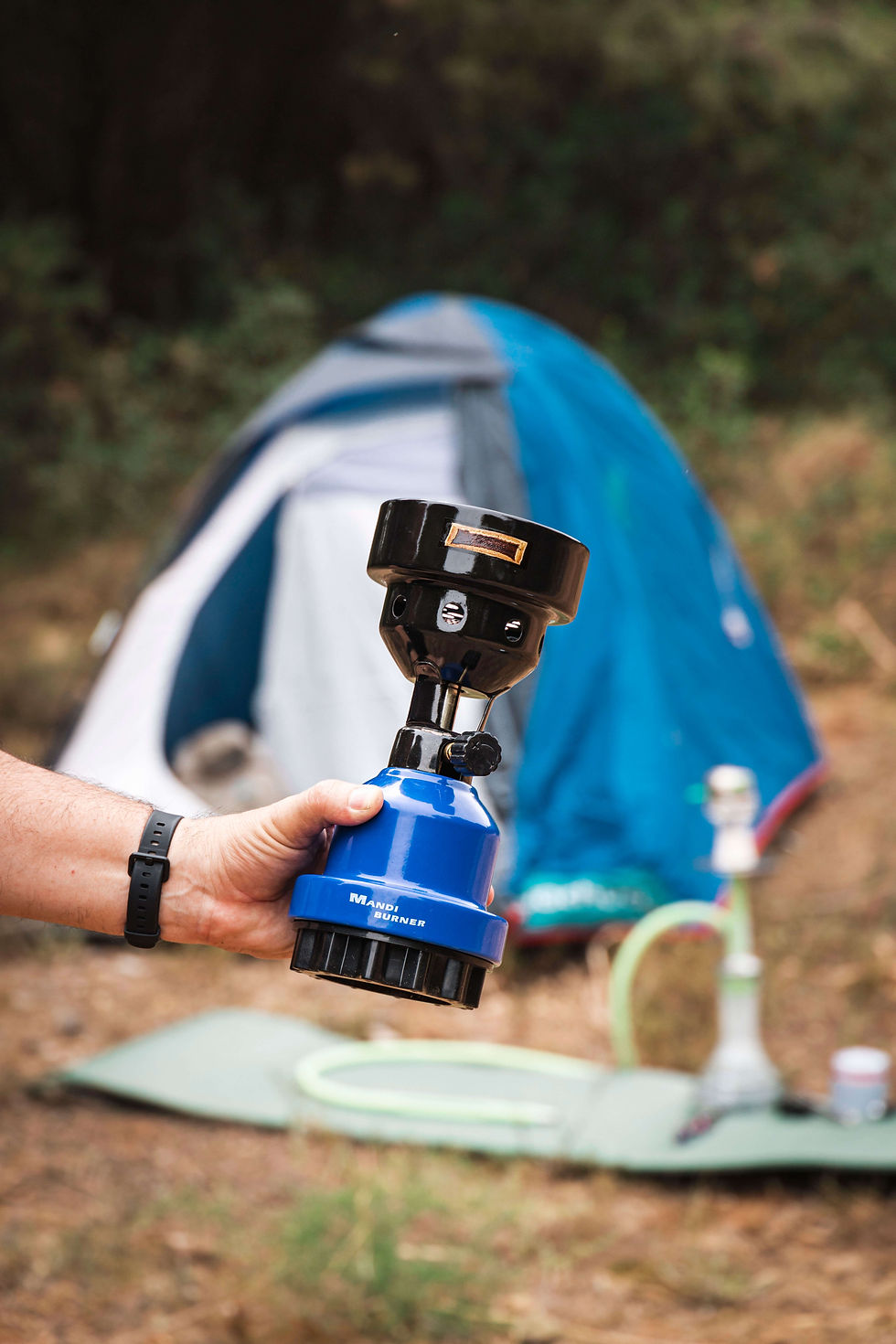Camping Gear Essentials: A beginners checklist for the gear you need!
- Dawn Jones
- Jul 13, 2023
- 3 min read
What’s on, my Ansom?
Through years of experience and practice, we, as experienced campers, have refined and perfected our camping trip preparation skills!
It’s easy for us to answer the question “What camping gear do I need?”, but what if you don’t have those years of experience behind you yet? The truth is, camping is an activity which can require a lot of gear and a well-executed plan to ensure an excellent result.
And if you’re new to the game, you can soon find yourself overwhelmed with the planning of it all. Or, even worse, you can find out too late that you’re missing some key gear when you’re already out in a field at night and it’s chucking it down with rain! But we’re here to help!
In today’s blog, you’ll be getting a basic list of items to cross off that should help you cover your basics when getting ready to go camping.
What camping gear do I need? - A basic list
1. Shelter and Sleeping Gear:
Tent: A reliable and spacious tent is essential for a cosy night's sleep. Consider the size based on the number of occupants and the weather you expect to encounter.
Extra Tent Pegs and Guylines: It’s always a good idea to a few extra on hand in case something goes wrong with your tent - which it can, and frequently will - especially with temperamental U. K weather!
Ground Sheet: Place this under your tent to protect the floor from abrasions and moisture.
Sleeping Bag: Choose a bag appropriate for the season, with the right temperature rating, to keep you snug during chilly nights.
Sleeping Pad/Mattress/Airbed: These add comfort and insulation, preventing the cold ground from sucking away your body heat.
2. Cooking Essentials:
Stove and Fuel: A portable stove allows you to cook meals and boil water efficiently. Don't forget extra fuel canisters.
Cookware Set: Opt for lightweight, durable pots, pans, and utensils for easy cooking and cleaning.
Cool box or Ice Chest: Keep perishable food fresh and beverages cold with a good-quality cooler.
Biodegradable Soap: To keep your cookware and utensils clean while being kind to the environment.

3. Clothing and Personal Items:
Apparel: Dress in layers to accommodate temperature changes. Pack moisture-wicking and quick-drying clothes to stay comfortable.
Rain Gear: Be prepared for unexpected showers with a waterproof jacket and trousers.
Sturdy Footwear: Invest in comfortable hiking boots or shoes for support and protection.
Hat and Sunglasses: Shield yourself from the sun's rays during the day.
Personal Hygiene: Include essentials like toothbrush, toothpaste, biodegradable soap, hand sanitiser, and toilet paper (always practice Leave No Trace principles).
First Aid Kit: Be ready for minor injuries and ailments with a well-stocked first aid kit.
4. Lighting and Navigation:
Headlamp/Torch: A hands-free light source is crucial for moving around the campsite at night.
Extra Batteries: Always carry spares to avoid being left in the dark.
Compass or GPS: Aid navigation in unfamiliar territory, especially if you plan to explore the wilderness.
5. Miscellaneous Essentials:
Pocket Knife or Multi-tool: A versatile tool for various tasks and emergencies.
Duct Tape: A lifesaver for quick fixes on gear and equipment.
Rubbish Bags: Keep the campsite clean by properly disposing of your rubbish.
Firestarter: Matches, lighters, or fire starters to help build a campfire safely.
Insect Repellent: Ward off pesky insects to enjoy your camping experience to the fullest.
Repair Kit: Small equipment repairs may be necessary; bring a repair kit for tents, sleeping bags, and more.
Entertainment: Consider bringing books, games, or a guitar to unwind around the campfire.
6. Optional Comfort Items:
Camp Chairs: Relax and take in the scenic beauty in comfort.
Hammock: Perfect for afternoon naps or stargazing.
Portable Solar Charger: Keep your gadgets charged using renewable energy.
Time to pitch up!
So there you have it, folks! A nice basic starter pack that should see you covered as you head out on your camping adventures.
Remember, the camping equipment you choose should suit your camping style and the environment you’re staying in! Prioritise safety, comfort, and sustainability when making your decisions. It's also a good idea to do a trial run in your garden to familiarise yourself with the gear before heading out on a more extended trip.
We hope this will help some of you on your journey into the world of Camping, and we’d love to see you at our site!
If you think we’ve missed anything glaringly obvious from our list, or if you just have any other useful tips or ideas to add, please feel free to let us know by commenting below!
Later on!



Comments